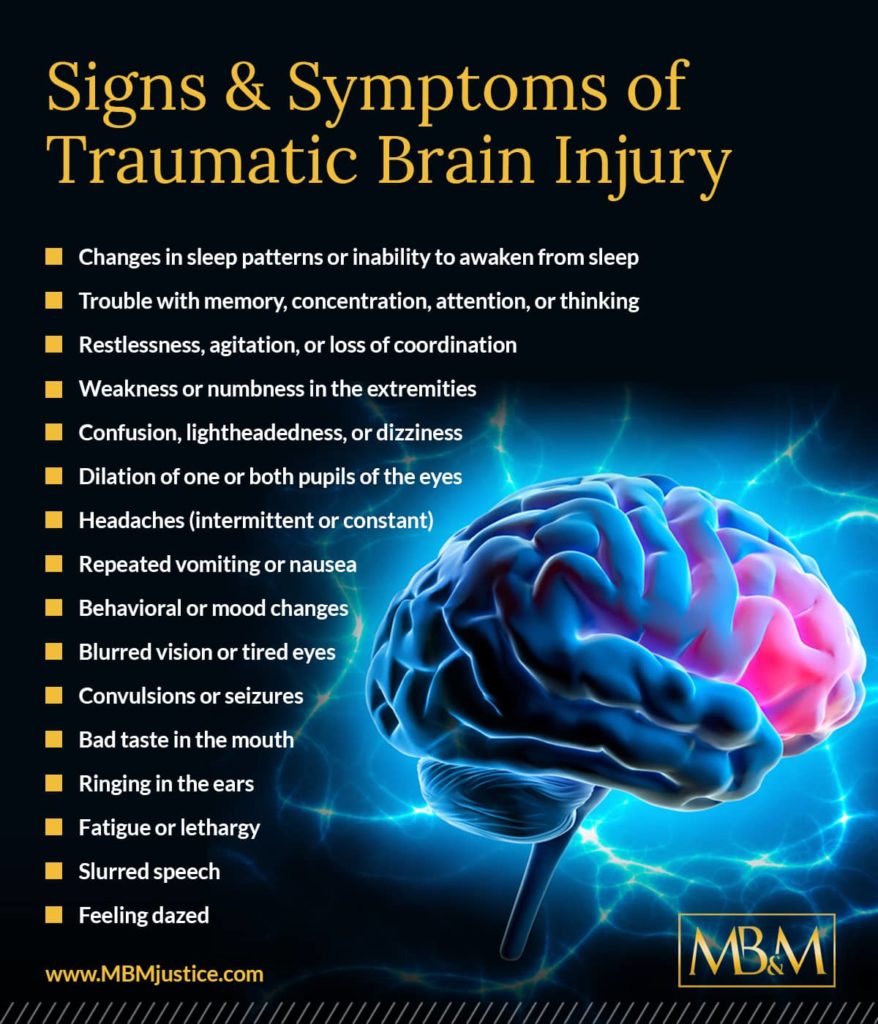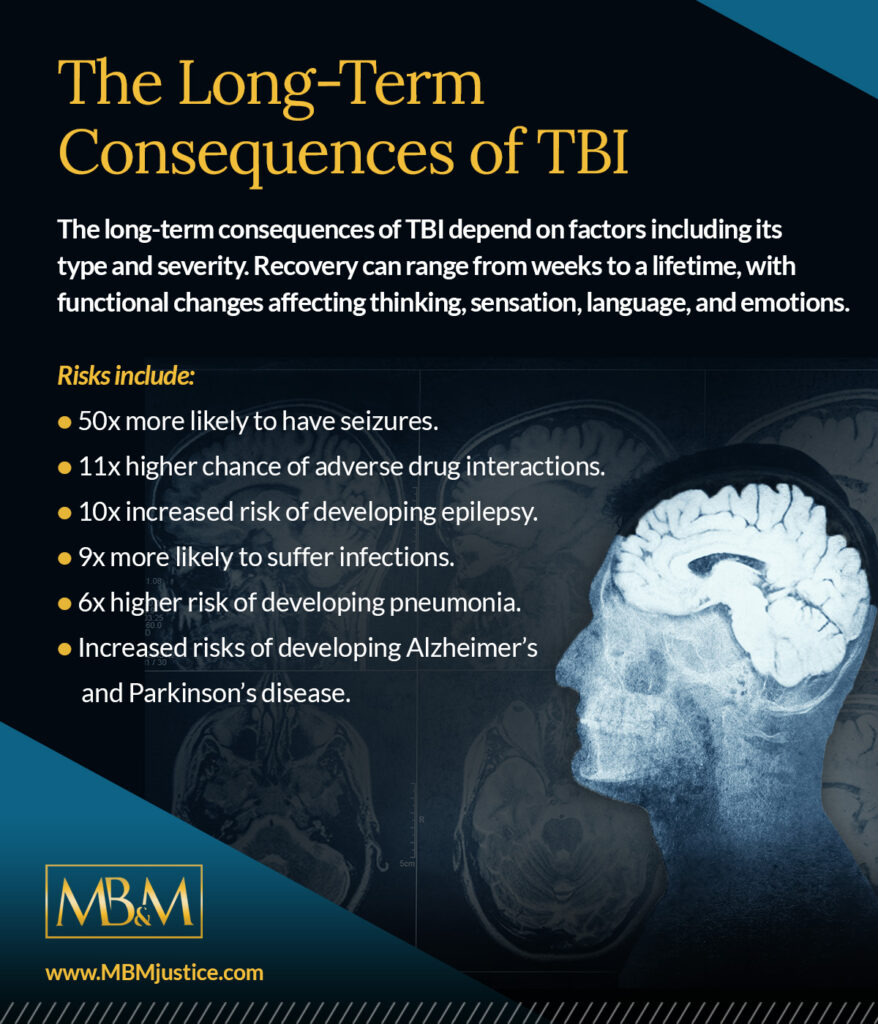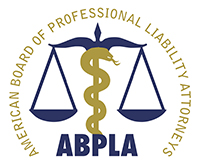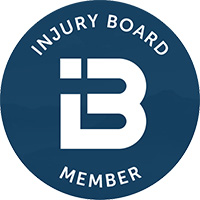Brain Injury Attorneys Proudly Serving All of Rhode Island
The Rhode Island brain injury lawyers at Mandell, Boisclair & Mandell fight for the rights of individuals and families dealing with the life-altering consequences of serious head trauma. With our experience, attention to detail, and proven success, we are here to listen to your story, evaluate the ways your injury has and will continue to impact your health and happiness, and help you determine the best way to seek fair and full compensation.
In the aftermath of a traumatic brain injury (TBI), victims and their families often face overwhelming medical challenges, emotional distress, and financial burdens. When you or a loved one sustains a brain injury in an accident caused by someone else, you have every right to hold that party to full account and seek maximum compensation for these damages.
The Rhode Island brain injury lawyers at Mandell, Boisclair & Mandell are here to help you understand all of your legal options. Call our Providence office at (401) 273-8330 to schedule a complimentary case review right away. We fight for victims of brain injury living in Providence, and all other areas of the state.
What Is a Traumatic Brain Injury?
A traumatic brain injury is an injury that disrupts the normal functioning of the brain. Often caused by a sudden blow or jolt to the head, TBI may present a broad range of physical and psychological effects, which can show signs immediately after the trauma or appear days, weeks, or even months later.
A catastrophic injury, TBI is often impossible to recover from, resulting in a lifetime of struggle for victims and those who care for them.
Types of TBI and Levels of Severity
Several types of traumatic brain injury can be sustained in an accident. These include:
- Concussion. The most common type of TBI, concussions most commonly result from a direct blow to the head.
- Extra-Axial Hematoma. This type of brain injury involves bleeding that occurs outside the brain, but within the skull, and is usually a result of a severe head injury, often involving fracture.
- Contusion. This type of traumatic brain injury is caused by a direct impact to the head and may involve damage at the site of impact as well as on the opposite side of the brain. Contusions can lead to swelling, hemorrhage, and an increase in intracranial pressure, which can cause significant neurological problems.
- Traumatic Subarachnoid Hemorrhage. This is bleeding into the two innermost layers of the meninges that surround the brain. It’s typically the result of a fall or a blow to the head. This type of TBI can increase intracranial pressure and decrease cerebral blood flow, which can lead to brain damage and other complications.
- Diffuse Axonal Injury. This severe form of involves the tearing of the brain’s axons due to rapid acceleration or deceleration of the head. The damage is widespread, not localized, leading to serious disruption in normal brain function and often resulting in coma or death.
There are three levels of TBI severity, the most common of which, mild, is used interchangeably with the word concussion. However, while concussion is the most common degree of brain injury, many accidents in Rhode Island result in moderate to severe TBI as well.
Moderate TBI often causes long-term complications and requires immediate medical attention. Severe TBI can be life-threatening and often leads to physical and emotional changes that require long-term rehabilitation.
Mild TBI does not mean “minor.” Repeat concussions can result in permanent damage, induce mood and behavioral changes, limit memory and concentration, and increase risks of premature death. Even mild TBI might deserve the attention of a qualified brain injury attorney who can assess its full damage and seek fair compensation.

What Are the Symptoms of a Traumatic Brain Injury?
The signs and symptoms of TBI vary depending on factors including the age of the victim along with the type and severity of the injury. These can include:
Mild TBI
- Temporary confusion
- Short-term memory loss
- Dizziness
- Nausea or vomiting
- Headache
- Blurred vision
- Sensitivity to light or noise
- Changes in mood
- Changes in sleep patterns
- Feeling sluggish or groggy
Moderate TBI
Moderate brain injury may have the same symptoms as concussion, along with:
- Persistent headache
- Repeated vomiting
- Seizures or convulsions
- Inability to awaken
- Pupil dilation (one or both eyes)
- Slurred speech
- Difficulty swallowing
- Weakness in appendages
- Loss of coordination
- Profound confusion
- Combative or aggressive behavior
Severe TBI
Severe brain injury may have similar symptoms to mild and moderate TBI, in addition to:
- Coma
- Persistent vegetative state
- Loss of long-term memory
- Severe confusion or disorientation
- Loss of motor function
- Paralysis
- Major personality changes
- Sudden mood swings
- Speech and language difficulties
- Severe cognitive disruptions
- Breathing problems
Traumatic brain injuries may produce immediate symptoms, but delayed onset is common as well. When you sustain a blow to the head, it is important to seek medical attention right away—even if you do not think you are injured. This helps to ensure injury to the brain is identified and addressed swiftly.
TBI Symptoms in Children
Traumatic brain injury can be especially dangerous for children due to their still-developing brains. It’s imperative to seek medical attention if a child has experienced a blow or jolt to the head and shows any of the following symptoms:
- Behavioral changes
- An inability to pay attention
- Loss of interest in toys and activities
- Loss of developmental skills
- Trouble balancing and walking
- Sadness or depression
Children who have suffered TBI may also have seizures, develop sensitivity to light and sound, and experience many of the same symptoms as adults. Seeking immediate medical attention can help to reduce the risk of developing more advanced complications.
How Are Traumatic Brain Injuries Treated?
Successfully treating TBI may include:
Emergency Treatment
Emergency treatment for traumatic brain injury focuses on stabilizing the patient and preventing further damage. Specific steps in emergency treatment may include:
- Ensuring adequate oxygen supply
- Maintaining blood flow
- Controlling blood pressure
- Preventing additional injuries
Emergency surgery may also be needed to reduce pressure in the brain, remove blood clots, repair skull fractures, or create an opening in the skull to drain accumulated cerebrospinal fluid or blood.
Patients with concussions may not require medical treatment, but they often benefit from rest, over-the-counter pain relievers, and careful monitoring for any worsening symptoms. Because repeated concussions can result in serious and life-altering consequences, it’s a good idea to get checked by a doctor even if you don’t suspect treatment is needed.
Long-Term Rehabilitation and Therapy
People with moderate to severe TBI often need long-term treatment and rehabilitation to regain lost skills or learn to cope with new limitations. Therapies required by brain injury may include:
- Physical Therapy to improve strength, coordination, flexibility, and balance.
- Occupational Therapy to help relearn daily activities such as dressing, cooking, and bathing.
- Speech and Language Therapy to improve communication skills along with swallowing ability.
- Psychological Counseling to learn coping skills, address mood changes, and improve interpersonal relationships.
- Vocational Counseling to return to work or school.
- Social Support and Support Groups to connect with others who have had similar experiences.
Treating TBI takes months or even years, and full recovery is never guaranteed. Working with the most capable medical professionals can help to ensure the best outcomes, but these professionals are often expensive, which can make them cost-prohibitive when wages have stopped. Having an experienced brain injury lawyer on your side works to ensure the compensation you seek is sufficient for the most advanced medical care.
What Is the Prognosis for Traumatic Brain Injury?
The prognosis for TBI can vary significantly depending on its type, location, and severity. Other factors, such as the patient’s age, general health, and the quality and timing of medical care can also influence outcomes.
In cases of mild TBI or concussion, some may experience post-concussion syndrome—with symptoms such as headaches, dizziness, memory problems, and concentration difficulties—for weeks or even months after the injury.
Individuals with moderate to severe TBI can have a wide range of functional changes affecting thinking, sensation, language, and emotions. In addition, victims of moderate to severe brain injury are:
- 50x more likely to experience seizures
- 11x more likely to suffer adverse drug interactions
- 9x more likely to experience infections
- 6x more likely to develop pneumonia
Increased risks for epilepsy, along with conditions such as Alzheimer’s disease, Parkinson’s disease, and other degenerative disorders, are also more likely among victims of TBI.
Recovery from moderate to severe TBI can be a lengthy process. Many patients with severe brain injury require long-term assistance for basic daily activities. Some will never be able to function without assistive care again.
Can I File a Lawsuit for TBI In Rhode Island?
If you’ve suffered a brain injury due to the negligence of another party, you might have the right to seek compensation through a personal injury lawsuit. The best way to determine if you are entitled to take legal action is through a one-on-one consultation with an experienced attorney. The Rhode Island brain injury lawyers at Mandell, Boisclair & Mandell welcome the opportunity to meet with you, review your case, and help you determine the best course of action. Reach out today to schedule your free consultation.
How Much Is My Rhode Island Traumatic Brain Injury Claim Worth?
Every TBI case is unique. There is no “average traumatic brain injury settlement.” When determining the value of your TBI case, our attorneys will examine how your injury has and may continue to impact your life. This enables us to effectively assess your damages and determine the actual value of your claim.
Damages sought in a traumatic brain injury claim may include:
- Economic Damages such as medical expenses, lost wages, diminished earning capacity, and specialized care or housing.
- Non-Economic Damages such as mental anguish, physical pain, loss of enjoyment of life, and loss of consortium.
There are no caps placed on damages in TBI lawsuits in Rhode Island. This applies to both economic damages and noneconomic damages.
Because there are no caps on personal injury damages in Rhode Island, the brain injury lawyers at Mandell, Boisclair & Mandell can evaluate the worth of your claim without arbitrary limits, enabling us to fight for the full award you deserve. With this approach, we have secured some of the most significant verdicts and settlements in the nation.

Why Should I Choose Mandell, Boisclair & Mandell for My TBI Claim?
The Rhode Island brain injury lawyers at Mandell, Boisclair & Mandell have decades of experience handling these and similarly complex cases. We know how to conduct comprehensive investigations into each claim, enabling us to uncover evidence, identify the liable party, assess damages, and build a strong case on your behalf.
Our firm’s core values, which include honesty, empathy, respect, and professionalism, guide us in our mission to provide the most effective legal representation for victims of serious injury. And we remain committed throughout the legal process, standing by your side, answering your questions and calls, and keeping you involved every step of the way.
When you choose us for your TBI claim, we will put every effort into securing the total compensation you are due. Our experienced legal representation comes with a No Fee Promise. If we do not secure a favorable outcome in your case, you owe us nothing for our services.
Traumatic brain injuries can cause long-term, life-altering consequences. Some of the long-term effects of TBI include:
- Motor Deficits and Disabilities: A brain injury can permanently affect a person’s fine motor skills, making it difficult or impossible to carry objects, get dressed, and avoid falling. TBI can also impair someone’s ability to walk, drive, or move freely.
- Other Physical Effects: Traumatic brain injuries can cause a number of physical effects, such as fatigue, chronic pain, seizures, and the loss of bladder and bowel functions. TBI victims may also experience trouble with visual perception skills, making it challenging to navigate buildings, make sense of common images, or recognize certain objects or faces.
- Cognitive Effects: Depending on the severity of the injury and the area of the brain that was damaged, a TBI can affect someone’s language and problem-solving skills, as well as memory, concentration, and speed of thought.
- Effects on Speech and Language: A severe brain injury can make it difficult for an individual to communicate effectively and be understood by others.
- Effects on Vision: TBIs can cause photophobia (light intolerance), diplopia (double vision caused by eye muscle weakness), blurred vision, and partial or total vision loss.
- Effects on Hearing: While TBI victims can suffer hearing loss due to damage to the bones in the inner or middle ear, they can also experience tinnitus (ringing in the ears) or problems caused by the way their brains process sound after the brain injury.
- Effects on Smell and Taste: Damage to certain areas of the brain can harm the olfactory nerve (the nerve that carries smell sensation from the nose to the brain). Loss of smell often results in a loss of taste, as well.
- Loss of Employability: TBI can cause the loss of essential cognitive and motor skills, preventing some victims from ever working again. Not only can this harm the financial future of a TBI victim and his or her family, but it can negatively impact a person’s sense of purpose.
- Damage to Relationships: TBI victims often stop feeling like themselves anymore, which can make their partners feel as though they are involved with a completely different person. A number of cognitive and physical challenges can affect existing relationships and prevent new relationships from forming.
- Long-Term Financial Issues: Financial struggles are common after sustaining a traumatic brain injury. Medical treatment for TBIs can cost hundreds of thousands of dollars. Lifelong care can cost victims of severe TBI millions of dollars.
Damaged brain cells cannot repair or regenerate themselves. This means that brain damage caused by a traumatic brain injury (TBI) can be permanent. While some brain damage can be confined to an isolated area of the brain, it can also affect multiple areas. The impact of a brain injury can range from mild to severe, depending on the extent of the damage.
The majority of TBI recovery occurs within the first two years after the injury. Any improvement beyond that point is uncertain, although some patients experience further improvement as late as 5-10 years following the injury.
Statistically, individuals aged 15-24 are at the highest risk for head injuries. Injuries in this age range can disrupt crucial developmental processes, such as forming social networks, completing school, securing employment, and achieving independence from parental support. The disruption of this development can lead to poor self-esteem, social isolation, and family burdens.
Some brain injuries can worsen over time. It is believed that there are three primary reasons why certain TBI patients may experience a decline over time:
- Inadequate Treatment: Symptoms can get worse if the TBI victim is not given proper treatment.
- Chemical Changes: Harmful chemical changes can occur within the brain following a traumatic injury. For example, Brain injury can cause an excessive accumulation of neurotransmitters, such as glutamate, in the brain tissue, which can overstimulate neurons and cause neuronal death.
- Secondary Brain Injury: Complications that occur after the initial brain injury are referred to as secondary injuries. These can include hematomas (pools of primarily clotted blood that form in organs, tissue, or areas of the body) and infections. In some cases, an injury may cut off blood circulation to certain areas of the brain, causing neuronal death.
While the risk of sustaining a traumatic brain injury is significant for people of all ages, the risk is highest among adolescents, young adults, and people over the age of 75. The risk of TBI among men is twice the risk among women. The Center for Disease Control and Prevention (CDC) reports the primary causes of TBI deaths are:
- Falls account for 29.9% of TBI-related deaths. Adults over the age of 75 have the highest rate of TBI-related deaths due to falls.
- Motor Vehicle Accidents account for 17% of TBI-related deaths. Individuals aged 15–24 years and 25–34 years have the highest rates of TBI-related deaths due to auto accidents.
Every traumatic brain injury, and its effect on a victim’s life, is different. Therefore, the value of any personal injury lawsuit, including those that involve traumatic brain injuries, vary significantly between cases. TBI-related medical bills can easily amount to hundreds of thousands of dollars. Lifetime care for a TBI victim can cost millions.
When determining the value of a traumatic brain injury case, an attorney will assess the economic and non-economic impact the injury has had on the victim’s life.
Economic Damages
These damages include:
- Medical expenses
- Lost wages
- Diminished earning capacity
Non-Economic Damages
These damages include:
- Mental anguish
- Pain and suffering
- Loss of enjoyment of life
- Loss of consortium
Contact Our Rhode Island Brain Injury Lawyers Today!
If you have sustained a brain injury in an accident or if a loved one has died due to complications from TBI, contact Mandell, Boisclair & Mandell online or call us at (401) 273-8330 to schedule your FREE case review at our Providence office, today.




























